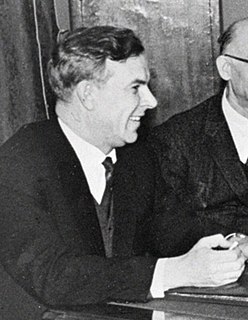A Quote by Phoebe Gloeckner
A character does seem to have a life of its own, but I have what I'd describe as a very fluid relationship with them - as I'm thinking of what they will be like, they shift in and out of focus - they are a projection of some idea inside of me, even if a character is inspired by an actual person, I'm well aware that it is not that person. My job is to identify the essence of the character, and to bring them to life long enough to commit the acts, say the words or simply "be" in a way that allows them to affect and be affected by other elements and events in the imaginary world of a story.
Quote Topics
Acts
Actual
Affect
Affected
Aware
Bring
Character
Commit
Describe
Does
Elements
Enough
Essence
Even
Events
Fluid
Focus
Idea
Identify
Imaginary
Imaginary World
Inside
Inspired
Job
Life
Like
Long
Me
Other
Out
Own
Person
Projection
Relationship
Say
Seem
Shift
Simply
Some
Story
Them
Thinking
Very
Way
Well
Will
Words
World
Related Quotes
But I always need to identify with a character to write about him or her - and by "identify," I mean see the world through that person's eyes and have a strong sense of the inner logic of their acts and decisions, wacky or wrongheaded though they might be. In that sense, I think there's some of me in all of them.
But I always need to identify with a character to write about him or her - and by 'identify,' I mean see the world through that person's eyes and have a strong sense of the inner logic of their acts and decisions, wacky or wrongheaded though they might be. In that sense, I think there's some of me in all of them.
If I write a character, instead of looking from the outside, like maybe a journalist would, trying to describe them physically and figuring out what kind of things they might be interested in or have in their house, I don't really do it that way. I try to feel what it would be like to be inside this person, to be them.
Even when you think you can detach yourself from the characters, you don't. Because you're spending so much time trying to realize this person and make them real that they do infect you, in a way. And you do take them home and live with them, even if you think you're turning the character off. But in order to pull off a role convincingly, you wind up thinking about that person all the time, and it does sort of creep into you. And then there are things that you'll respond to, or react to in a very different way than you would normally.
First person allows deeper insight into the protagonist's character. It allows the reader to identify more fully with the protagonist and to share her world quite intimately. So it suits a story focused on one character's personal journey. However, first person shuts out insights into other characters.
When you are writing, you have to love all your characters. If you're writing something from a minor character's point of view, you really need to stop and say the purpose of this character isn't to be somebody's sidekick or to come in and put the horse in the stable. The purpose of this character is you're getting a little window into that character's life and that character's day. You have to write them as if they're not a minor character, because they do have their own things going on.
I believe that they were brave people. One should be of courageous character to do what they had done, not only this, one should be a person of strong character and bravery - not ordinary people. That what I would call them. It's not like some petty official or something that decided to defect to the other side. For them it was a very serious moment.
A dream inspiring a story is different than placing a description of a dream in a story. When you describe a character's dream, it has to be sharper than reality in some way, and more meaningful. It has to somehow speak to plot, character, and all the rest. If you're writing something fantastical, it can be a really deadly choice because your story already has elements that can seem dreamlike.
There are more similarities than differences when it comes to preparation of a performance. You're using some lyrics, you have a relationship with them, they apply to different parts of your life and different circumstances, different memories, different stories you have in your head. You form personal relationships with the song. I think that's very similar, in a way, to prepping a character. You pour your own personality, in a sense, into the character, you sympathize with a character in a way that's similar to the way you might sympathize with a song.






































